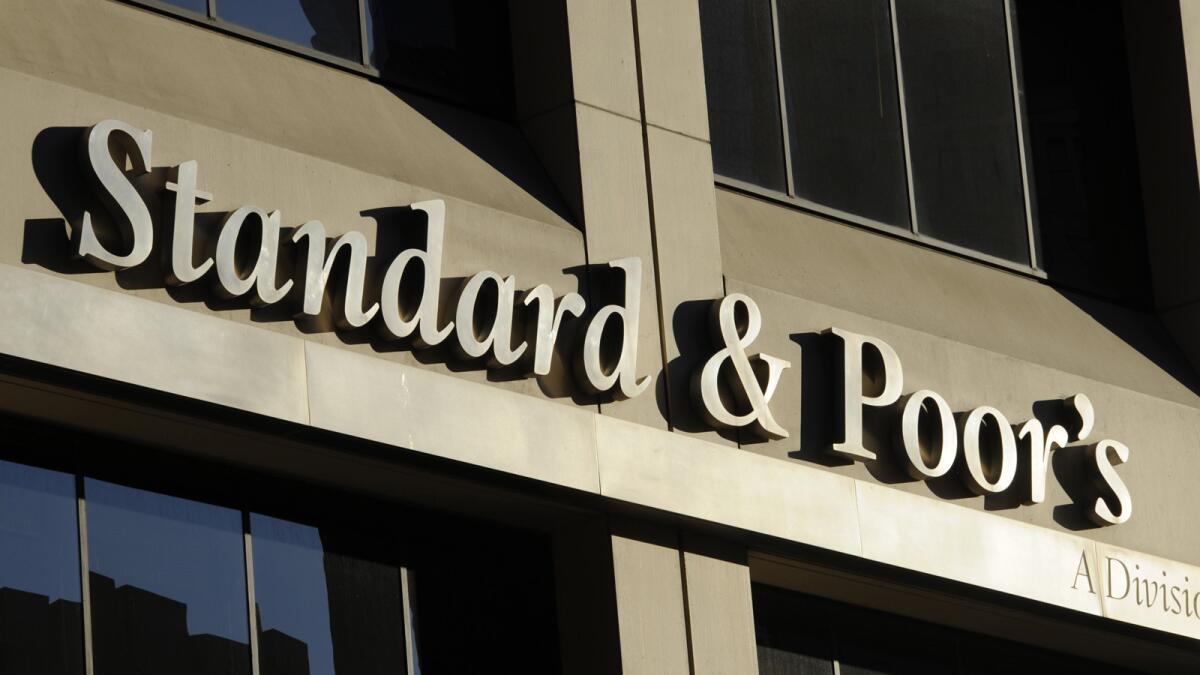Standard & Poor’s may reach $1.38-billion settlement on mortgage bond ratings

- Share via
Standard & Poor’s may complete as early as Monday a $1.38-billion accord with the U.S. and 19 states, including California, over claims that it inflated subprime mortgage bond ratings before the financial crisis, a person familiar with the talks said.
The ratings company deepened the 2008 economic collapse by giving top ratings to bad mortgage debt to win business from Wall Street banks, the government said. The U.S. had said it might seek as much as $5 billion when it sued S&P in 2013. The states and the District of Columbia also sued the McGraw Hill Financial Inc. unit.
The Justice Department has secured settlements worth tens of billions of dollars during the last two years from mortgage lenders and banks that it blamed for the financial crisis. Those companies generated unprecedented amounts of shoddy mortgages packaged and sold to investors as securities, many of which turned out to be worthless despite investment-grade ratings.
New York-based S&P, the only credit rater sued by the Justice Department’s residential mortgage-backed securities working group, contends that it was singled out because it downgraded U.S. debt in 2011. Its competitors, which issued the same grades for the same securities, weren’t sued by the U.S. The case is scheduled for trial in September.
Representatives of S&P and the Justice Department didn’t immediately comment. The person familiar with the talks didn’t want to be identified because the negotiations are private.
The U.S. accused S&P of lying about its ratings being free of conflicts of interest. The government has said it might seek as much as $5 billion in civil penalties for losses by federally insured financial institutions that relied on the company’s investment-grade ratings for mortgage-backed securities and collateralized-debt obligations.
More to Read
Inside the business of entertainment
The Wide Shot brings you news, analysis and insights on everything from streaming wars to production — and what it all means for the future.
You may occasionally receive promotional content from the Los Angeles Times.










